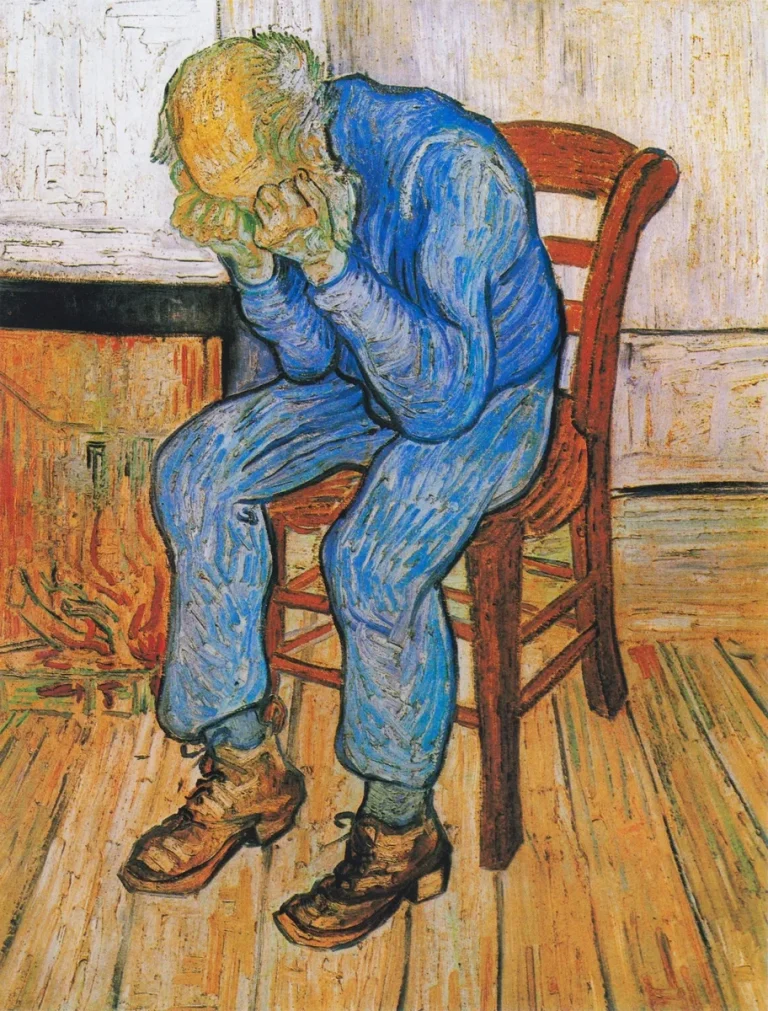BIGSPD Reflections on Borderline Personality Disorder developments
-
by
Dr Constantina Katsari
- No Comments on BIGSPD Reflections on Borderline Personality Disorder developments
BIGSPD 2025: Where are we?
Earlier this June, I had the opportunity to attend the BIGSPD 2025 Annual Conference in Liverpool, a vibrant gathering of over 580 professionals and people with lived experience dedicated to advancing understanding and support for individuals living with personality disorders. Hosted at the historic Adelphi Hotel, this three-day event brought together clinicians, academics, service users, and peer leaders — all committed to reshaping how we support people with complex emotional needs. For BPD UK, it was an inspiring and grounding experience, filled with both critical insights and genuine community connection.
Personality Disorders on Centre Stage — With BPD in Focus
While the conference explored the full spectrum of personality disorders, there was significant attention given to Borderline Personality Disorder (BPD). This focus aligns directly with our mission at BPD UK — to support the families and carers of those living with BPD, who are too often left unsupported by mainstream services. Talks on DBT, trauma, relational care, identity, and lived experience highlighted just how essential nuanced, long-term support is for this group.
Several sessions explicitly addressed BPD, including discussions on the co-production of training programmes, the overlap with autism, and the social construction of identity disturbance. A standout panel explored how clinicians conceptualise BPD in older populations — an often overlooked group in mental health discourse. These conversations not only underscored the complexity of BPD but also reinforced the need for a more compassionate, inclusive approach to diagnosis and care.
Peter Fonagy on Trauma, Trust, and Teaching
Among the many compelling speakers, Professor Peter Fonagy left a profound impression. His plenary, titled “Epistemic Trust, Mentalizing and Trauma,” unpacked the long-term effects of childhood trauma on people with BPD. Fonagy articulated that emotional instability and interpersonal difficulties in BPD often stem from early disruptions in the ability to trust and learn from others — what he calls epistemic trust.
Fonagy described epistemic trust as “a person’s willingness to consider new knowledge from another as trustworthy, generalizable, and relevant to the self.”(Fonagy, Luyten, & Allison, 2015) He emphasized that restoring this trust is essential to any meaningful therapeutic process. Without it, individuals may reject even the most well-intentioned support.
What struck me most was his exploration of how this applies beyond therapy. Fonagy illustrated how a teacher’s or carer’s ability to mentalise — to consider what someone else is thinking or feeling — can dramatically influence that person’s development. “Mentalizing enables us to recognize each other as intentional agents. In doing so, it establishes the social scaffolding for learning and attachment” (Fonagy & Allison, 2018).
For carers, this was a validation of something often felt but rarely articulated: their role isn’t just supportive — it’s transformational. How a carer relates can shape a loved one’s ability to recover.
Mick McKeown: Relational Practice Through a Marxist Lens
Another thought-provoking presentation came from Dr. Mick McKeown, whose talk, “Relational Practice: Making Hope Possible Rather Than Despair Convincing,” wove together mental health practice and Marxist ideology. McKeown argued that the way support is delivered in the UK is deeply shaped by structural inequalities — and that relational, democratic approaches can challenge these hierarchies.
As McKeown writes, “Relational practice is rooted in an ethos of mutual recognition and social solidarity” (McKeown, Wright & Mercer, 2017). His framing of support as a political act — as solidarity rather than service — offered a radical reframing of caregiving. He critiqued the pressures of managerialism in mental health and called for more democratic, co-produced models of care.
For a peer-led organisation like BPD UK, these ideas resonate deeply. We’ve seen first-hand how relational care can restore dignity and possibility. McKeown’s words reminded us that compassion isn’t soft — it’s transformative, and often deeply political.
Dr. Mike Crawford on the (In)Effectiveness of Brief Interventions
Dr. Mike Crawford of Imperial College London presented findings from a multi-year study investigating whether shorter psychological interventions could be effective for people with personality disorders. The results were stark: they don’t work. The research confirmed what NICE has long advised — psychological support for people with personality disorders should not be less than three months in duration.
Crawford’s study explored structured psychological support (SPS), a brief intervention model. The hope was to create a scalable solution in a system under pressure. But the findings were clear: while some short-term benefits emerged, they did not last. “We need to stop thinking we can shortcut recovery,” Crawford noted. “Complex trauma requires complex care.”
The study found that while brief support may appear cost-effective, it fails to produce long-lasting benefits. In fact, longer-duration therapy resulted in significantly better outcomes. In other words, quick fixes aren’t fixes at all. For policymakers and commissioners, this presents a challenge. But for carers and service users, it affirms the intuitive truth: meaningful recovery takes time, consistency, and relational depth.
At BPD UK, where we emphasise scalable yet grounded support, this research reinforces our approach. Our AI-powered Coach and peer-led groups are designed not to replace therapy, but to complement long-term engagement. It’s a balance of reach and depth — and this research makes it clear that depth must never be sacrificed.
Insights from Australia: Doing More with Less?
One of the most eye-opening presentations came from Professor Brin Grenyer, who joined from Australia to share lessons from the Project Air Strategy — a national initiative implementing whole-of-service, stepped-care models for treating personality disorders. His data suggested that Australia has found ways to deliver effective BPD treatment with fewer resources, without compromising quality.
Grenyer explained that their model integrates early intervention, carer involvement, and broad staff training — resulting in both cost savings and improved clinical outcomes. Grenyer emphasized: “We don’t need to wait for crisis to offer support. Stepped care means giving people the right help at the right time” (Grenyer, 2025).
The question inevitably arose: Why aren’t we doing this in the UK? While structural and cultural differences may explain part of the gap, the core principle is transferable: empower carers and professionals early, and outcomes improve.
This model could serve as a template for UK-based pilots — and at BPD UK, we’re keen to be part of that conversation.
Beyond the Sessions: Insights and Interaction
While the formal presentations were a highlight, much of the true value of BIGSPD 2025 came from the informal conversations between sessions — in hallways, over coffee, and during evening events. The social spaces fostered candid discussions between clinicians, researchers, carers, and peer supporters. It was in these moments that ideas were tested, alliances formed, and empathy shared.
The welcome reception and gala dinner added warmth and levity, helping attendees reconnect after years of isolation in the field. These interactions reminded us that while research shapes practice, relationships shape recovery.
A Call to Keep Building
BIGSPD 2025 was not just a conference — it was a mirror held up to the current state of personality disorder services in the UK. It highlighted what’s working, what needs changing, and most importantly, what’s possible when we centre relational care, lived experience, and long-term investment.
For BPD UK, it affirmed our direction — and challenged us to go further. We left Liverpool with deeper insights, stronger partnerships, and a renewed commitment to innovation grounded in compassion.
If you’re a carer, professional, policymaker, or ally: join us. Let’s transform how we support people with BPD — together.
Fonagy, Peter, Patrick Luyten, and Elizabeth Allison. 2015. “Epistemic Petrification and the Restoration of Epistemic Trust: A New Conceptualization of Borderline Personality Disorder and Its Psychosocial Treatment.” Journal of Personality Disorders 29(5): 575–609. https://doi.org/10.1521/pedi.2015.29.5.575
Fonagy, Peter, and Elizabeth Allison. 2014. “The Role of Mentalizing and Epistemic Trust in the Therapeutic Relationship.” Psychotherapy 51(3): 372–380. https://doi.org/10.1037/a0036505
McKeown, Mick, Nicola Wright, and Debbie Mercer. 2017. “Care Planning: A Neoliberal Three Card Trick.” Journal of Psychiatric and Mental Health Nursing 24(6): 451–460. https://doi.org/10.1111/jpm.12410
Grenyer, Brin F.S., et al. 2014. Project Air Strategy for Personality Disorders: A Stepped Care Approach to Treatment. Wollongong: University of Wollongong. https://www.projectairstrategy.org/
Crawford, Mike J., et al. 2020. “Structured Psychological Support for People with Personality Disorder: Feasibility Randomised Controlled Trial.” BJPsych Open 6(1): e13. https://doi.org/10.1192/bjo.2019.86
💬 Caring for someone with BPD?
👉 Book a FREE One2One support session
🧠 Join our FREE webinars and peer groups
📩 To book email us at: info.bpduk@gmail.com
Discover more from BPD UK
Subscribe to get the latest posts sent to your email.




